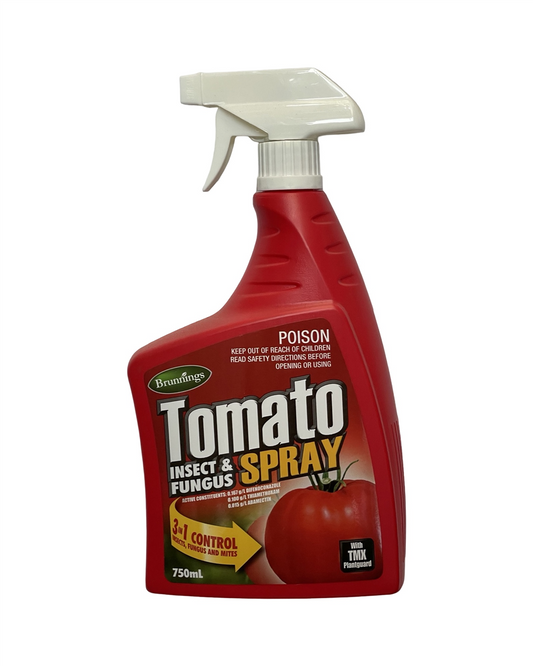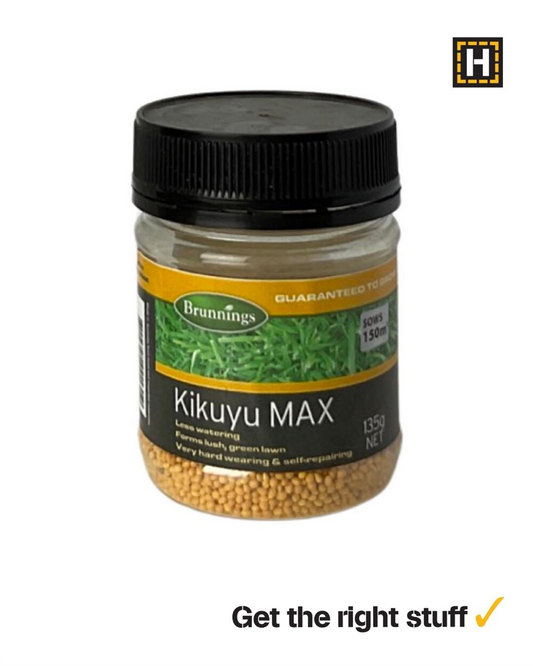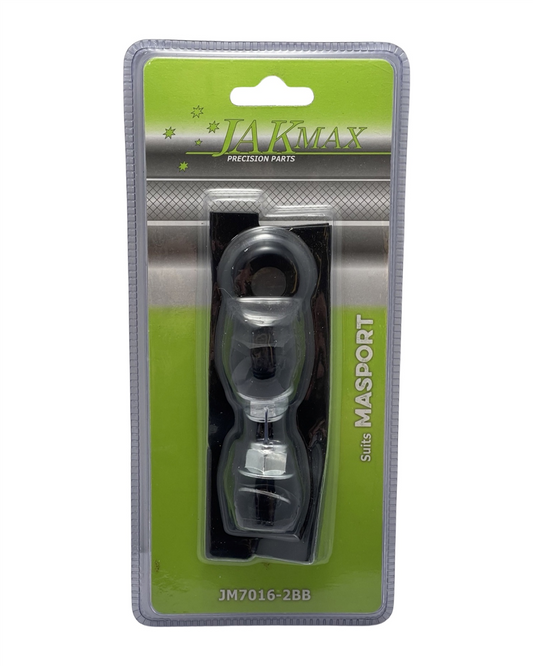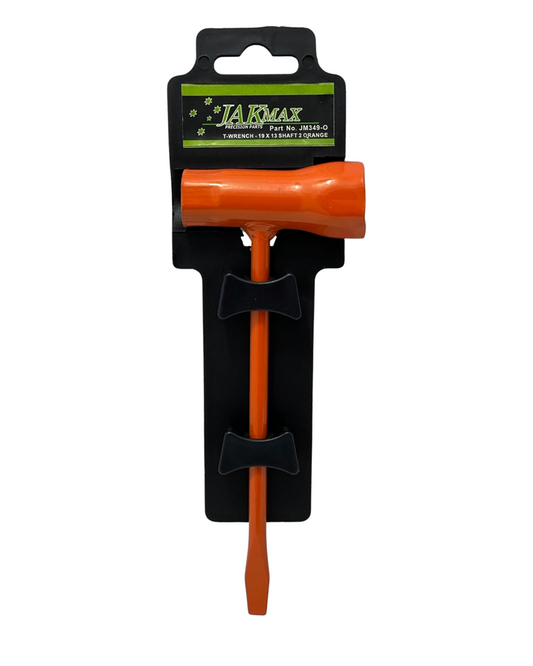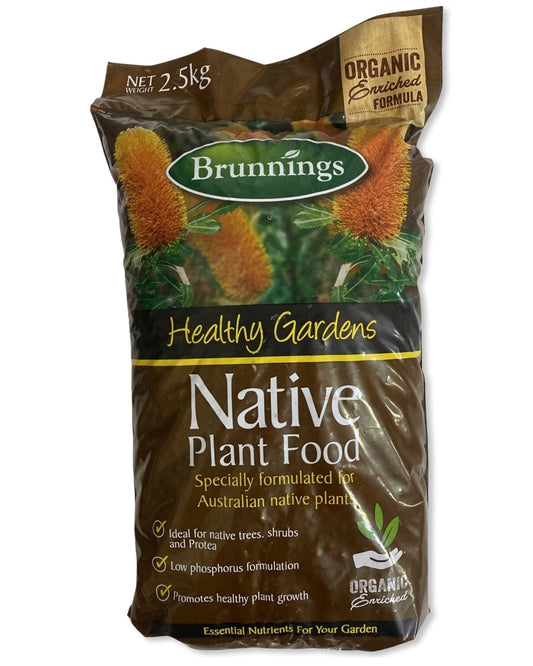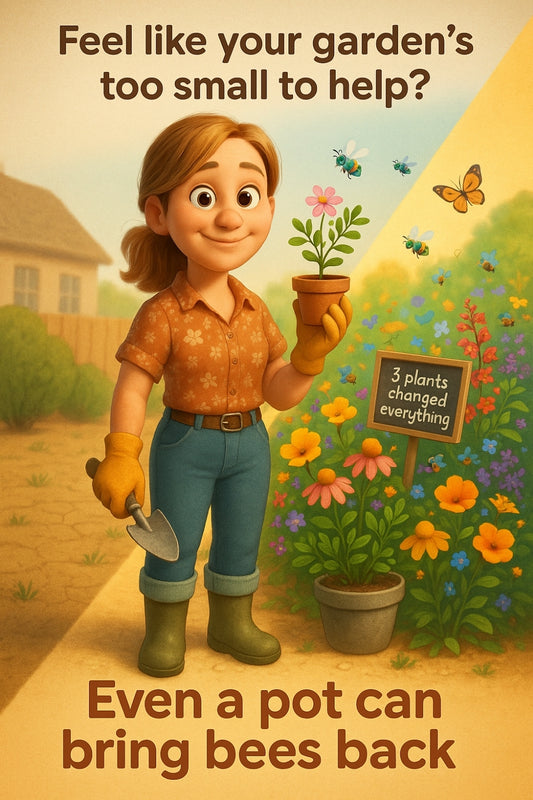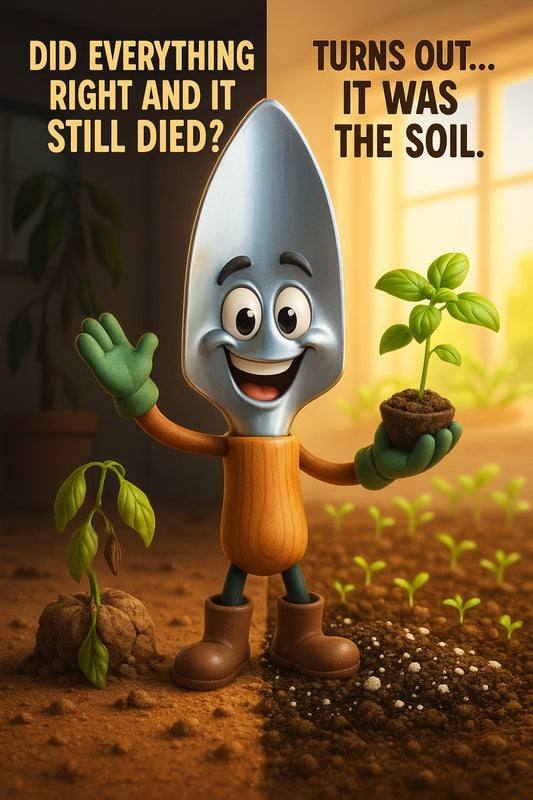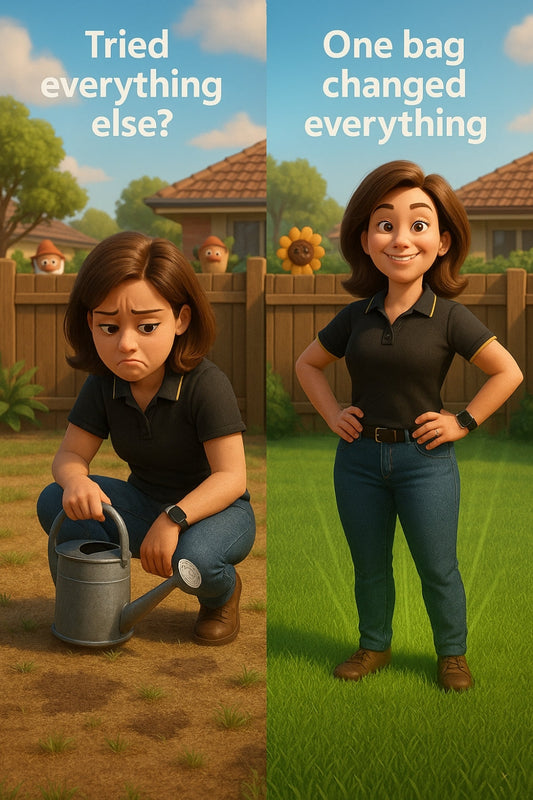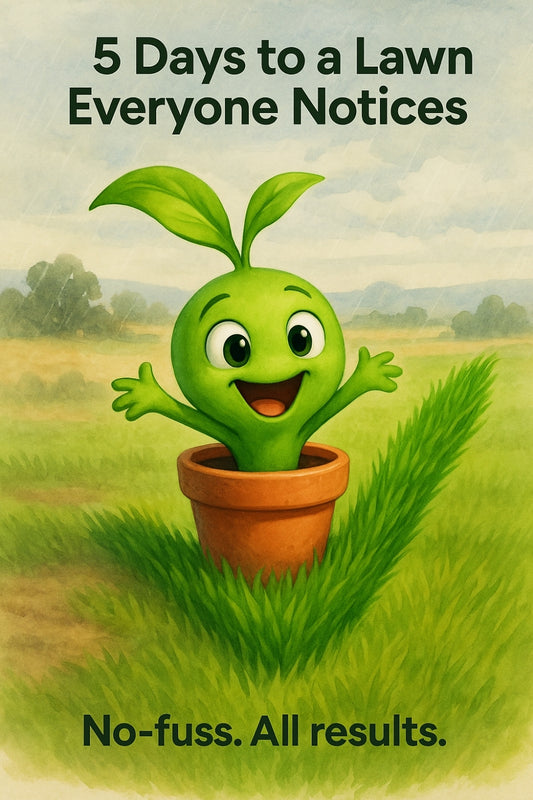Brunnings says mulch matters—so why are beginner gardens failing before they even grow?
Share
The hidden harm bare soil does—plus how to fix it fast, even as a beginner
You know that warm, earthy smell after it rains? That’s petrichor—a word scientists use for the moment soil breathes again. But what if the soil in your garden could barely catch its breath at all?
One local customer went from weedy disaster to a thriving veggie patch in 5 weeks—just by mulching.
What soil needs that most gardeners completely miss
We put on sunscreen when it's hot. We rug up when it's cold. But somehow, we expect our garden soil to go bare in all seasons. Left uncovered, soil becomes sunburnt, compacted, starves good microbes, and invites weeds. Not ideal when you're just trying to grow your first basil plant.
Here’s what happens when soil is left exposed:
- Moisture vanishes: Without a cover, water evaporates ridiculously fast—like, 4x faster on a hot, windy day.
- Weeds move in: Bare soil = open real estate.
- Good bacteria die off: There’s no protection from UV, so microbial life suffers—and they’re your hidden heroes.
- Soil structure breaks down: Rain hits hard, causing compaction and run-off instead of absorption.
The irony? A lot of beginner gardeners think a ‘clean’ garden bed means tidy bare soil. But what’s tidy to the eye can be turmoil underground.
So how does this play out in real life?
A local mate—we’ll call her Nicole—had just planted her first veggie patch. She’d laid out neat rows of baby lettuces, threw in some tomato seedlings, and called it a day. A week later, we bumped into each other at the shop and she looked flat. "Everything’s wilted," she said. "And I swear I watered it yesterday."
I asked her if she mulched—she hadn’t. We talked through simple options like pea straw or sugar cane mulch, both beginner-friendly and sold in manageable bags. She mulched that week. The following Friday, she popped back in. “It’s like the soil took a breath.” Spot on.
Great news: Nature already has the answer
Look to a forest floor—ever see bare dirt? Nature always covers her base. Fallen leaves, twigs, grasses. Think of mulch as your garden’s doona. It keeps it warm in winter, cool in summer, and protected all year round.
Not all mulch is equal (especially if you're just starting out)
If those mulch aisles feel like walking into a foreign movie with no subtitles, let’s make it simple:
- Pea Straw: Soft, lightweight, and breaks down into the soil—ideal for veggies.
- Sugar Cane Mulch: Clean, easy to spread, and gentle on new seedlings.
- Lucerne: Packed with nutrients, great for feeding the soil as it breaks down.
- Pine Bark: Long lasting, better for ornamental beds or under trees.
Bonus tip: Always water your garden before applying mulch. It traps in the moisture so it actually benefits the root zone.
“So... when exactly should I mulch?”
Short answer: now.
If your soil looks dry, dusty, cracked—or you’ve just planted something—cover it up. Autumn and spring are especially powerful seasons to mulch because they set the stage for extreme temperatures that follow. But really, you can start any day and see change by the weekend.
What mulch really does (besides the obvious)
Yes, it holds moisture, protects roots, and reduces weeds. But it also…
- Encourages worms and good microbes.
- Feeds the soil slowly as it breaks down.
- Adds visual warmth and polish to your patch—yep, your garden just got Insta-worthy.
From scattered to supported: The garden confidence shift
It’s not about being fancy. It’s about working smarter. And nothing makes gardening feel more doable than when your soil’s holding water, your seedlings stand tall, and weeds stop bossing you around. You didn’t fail at gardening—you just needed the doona.
Used to feel unsure? Now you’ll wonder how you ever gardened bare.
One final thought—you can’t grow confidence on bare ground
Soil is alive. And like anything we care about, it needs protection. Leaving it bare is like leaving your dog out in a hailstorm and wondering why it’s not doing tricks. Cover it. Nourish it. Let it rest. What grows from that space will surprise you—in the best way.
Happy gardening,
Candeece
 Stay Connected
Stay Connected
Join our gardening community on Facebook: Urban Gardener's Notebook
And follow our Store Facebook Page: Strathalbyn H Hardware on Facebook

